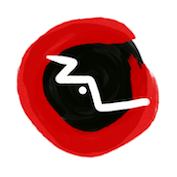Mixed arts; various countries
“For me in an arts project it is important that answers are not given, it should give people the stimulation to think, remind people of the complexity of a situation. Art should work against simplification and giving black and white explanations” Dagmar Reichert, director of Art As Foundation[5]
The Swiss Foundation for Art in Regions of Conflict is an independent arts foundation that started in 2011. Based in Switzerland and working with international artists and local partners, the foundation initiates its own art projects and supports their delivery while studying the contributions unrestricted art can offer to conflict mediation and the building of peace. The divide their projects into 3 types: Art and Reconstruction; Art and Mediation; Research and Networking. Geographically, much of their projects are focused on the South Caucasus[1]
Projects include the annual Tskaltubo arts festival (running since 2013 and now being locally managed). Tskaltubo is a formerly famous Soviet thermal resort in Georgia that hosts 4500 IDPs of Adkhaz origin who have been living in precarious circumstances in former sanatoriums for 25 years. Another project is Art Camps, collaborative arts workshops between students in the Zurich University of the Arts and Tbilisi State Academy of the Arts in Georgia which has run in 2012, 2014 and 2015. Other one-off interventions include the Complaints Choir which saw Finnish artists Tellervo Kalleinen and Oliver Kochta work with Georgian villagers and the refugee population living near Gori, Georgia. ‘Bring Your Own Chair’ was a collaboration with a Georgian NGO which saw a series of open-air cinema screening around the town of Zugdidi.
Art as Foundation argue art offers a specific way of relating to the world that creates new perspectives by offering a space beyond everyday concerns and stimulating discussion without letting anyone have the last word. It emphasises that in order for art to develop its potential,
“it must not be subordinated to any fixed goals or purposes—no matter how good the intentions might be. It needs spaces of trust in which to play, without guaranteed outcomes or proven effects”[2].
Dagmar Reichert, the director, describes how they conduct evaluations on all of their projects but avoid institutional forms of monitoring and evaluation which they have found generate limited learning; participants often telling them what they think they want to hear rather than what they actually think. When possible they invite other independent arts practitioners to observe and document their projects as a form of independent evaluation[3]. Reichert recognises that they are in a unique position because they are answerable to individual donors with whom they have direct relations (as opposed to institutional funders) and this allows them a freedom to learn for learning sake as opposed to evaluating to demonstrate their value.
Art as Foundation is committed to research and learning in the field. In May 2015 they hosted the Practitioners Forum on Art and Conflict[4] and they have developed an advanced studies programme with the Zurich University of the Arts on Art and International Cooperation.
[1] For further information see Art as Foundation website: http://www.artasfoundation.ch/en
[2] See the Art as Foundation’s Points of Departure on their website : http://www.artasfoundation.ch/en/points-of-departure
[3] Dagmar Reichert was interviewed for this research, April 2017.
[4] See http://www.artasfoundation.ch/forumartinconflict/
[5] Quote taken from April 2017 interview with Dagmar Reichert for this research
